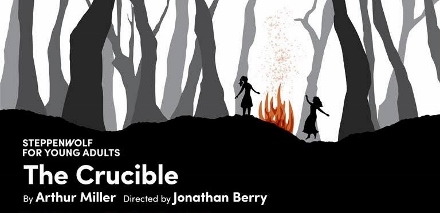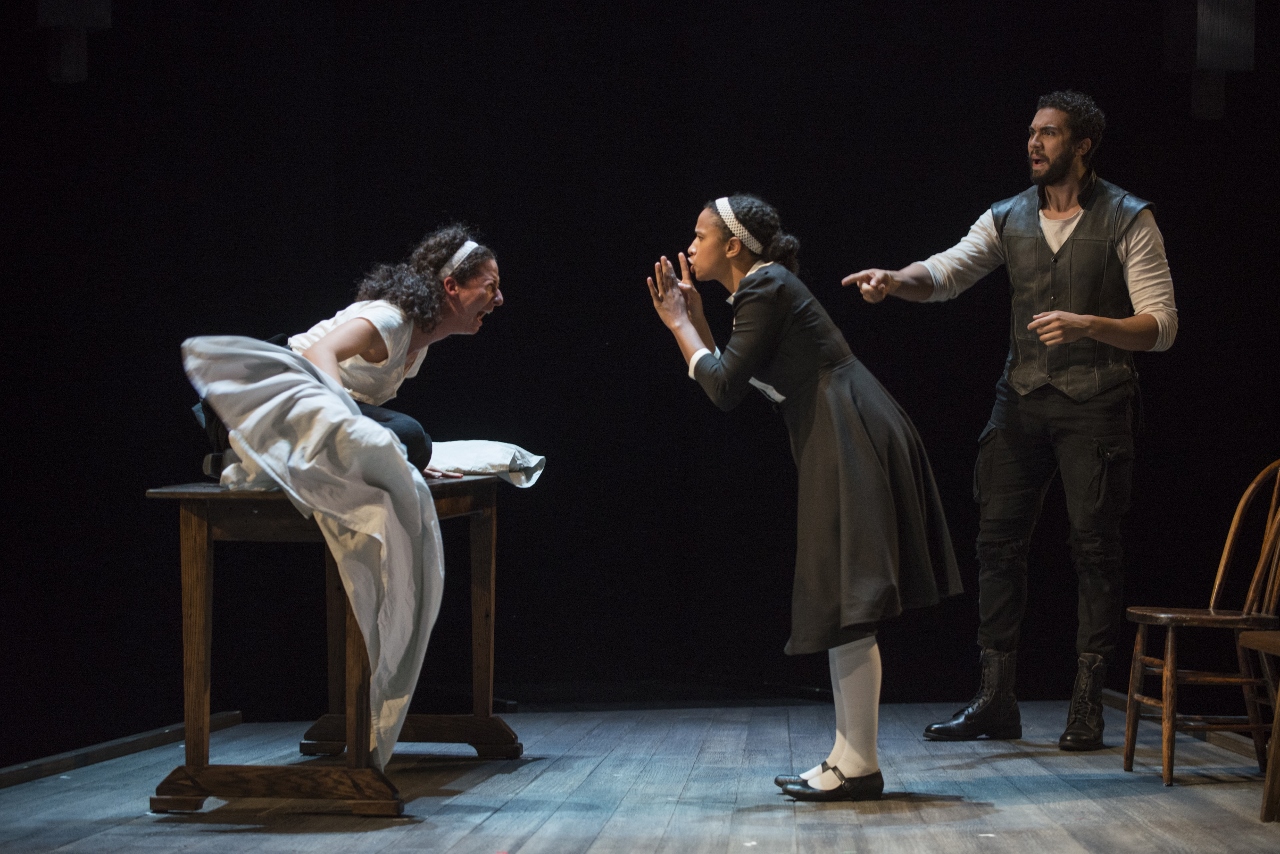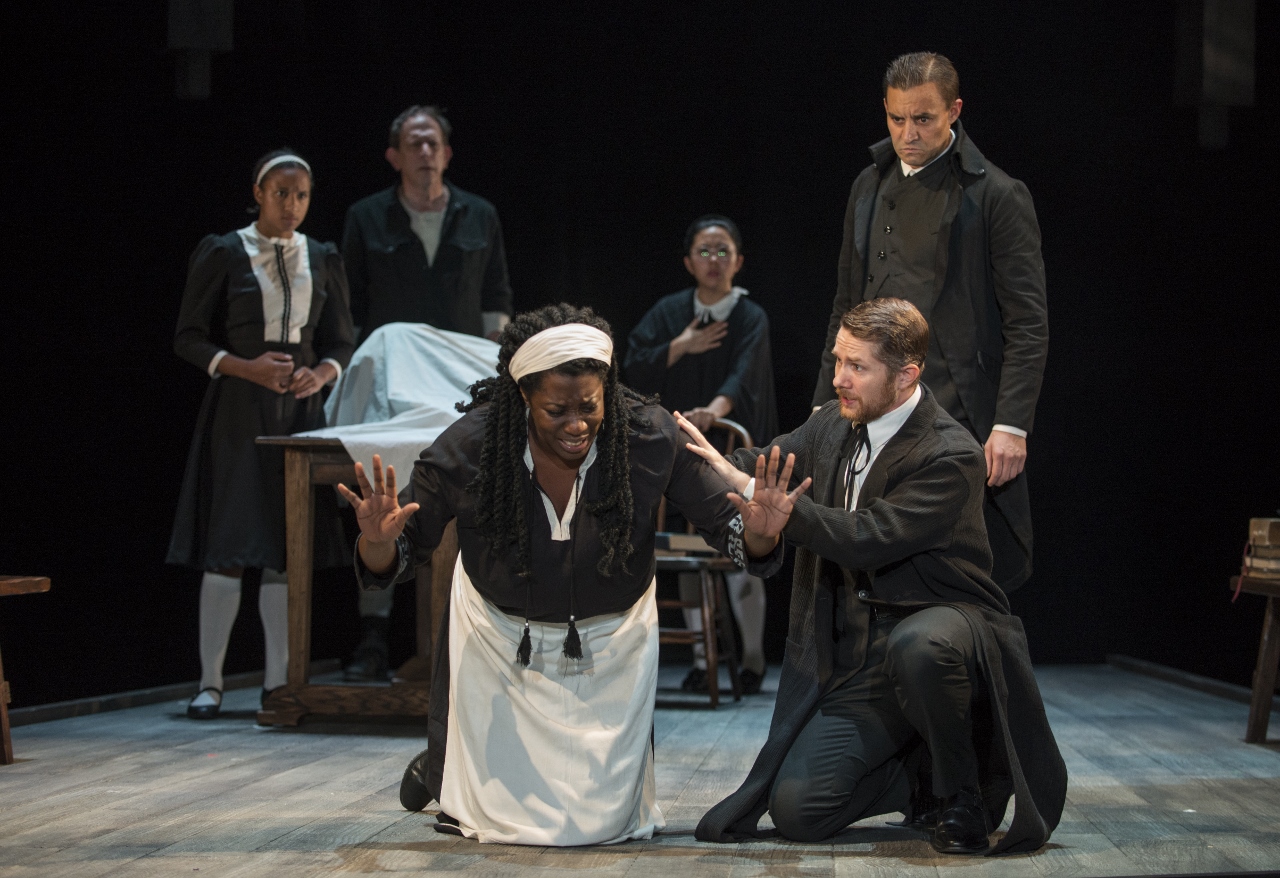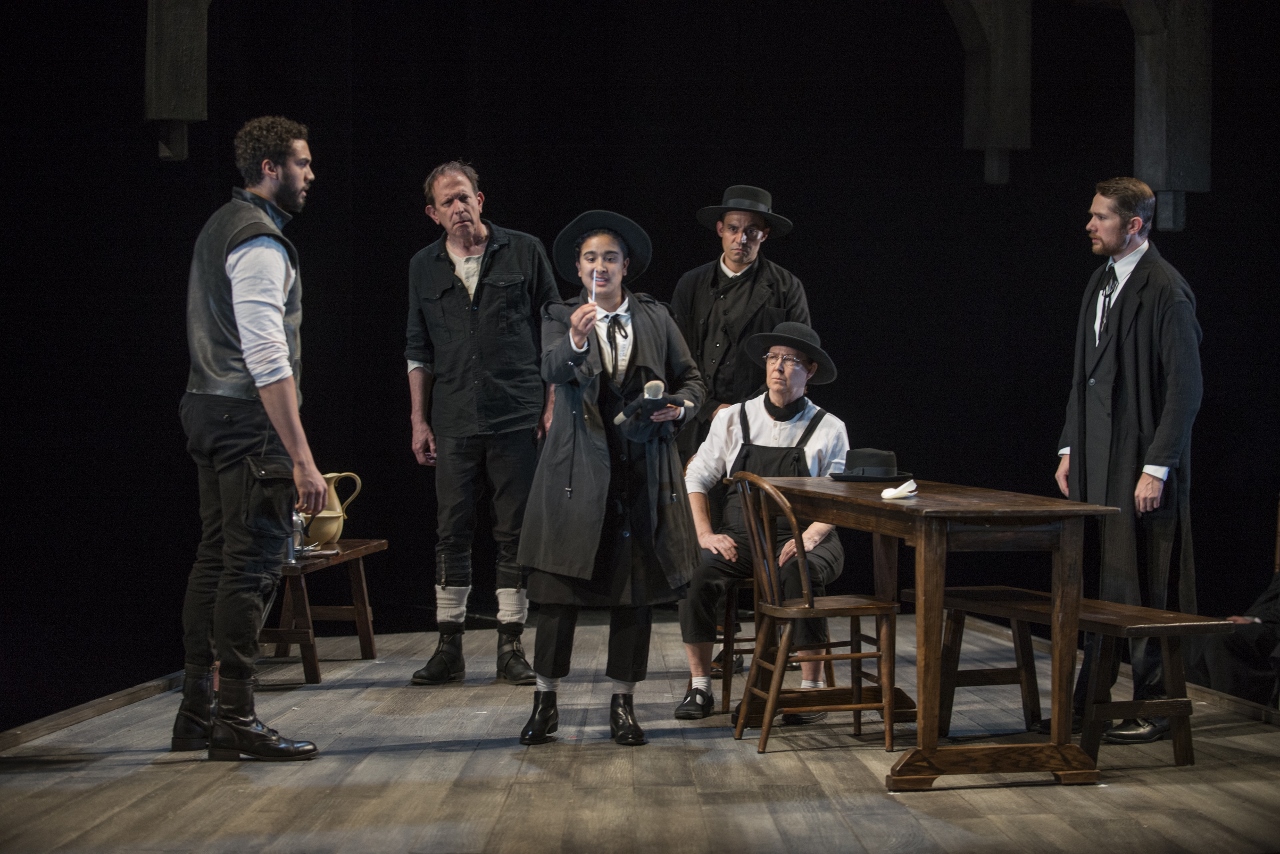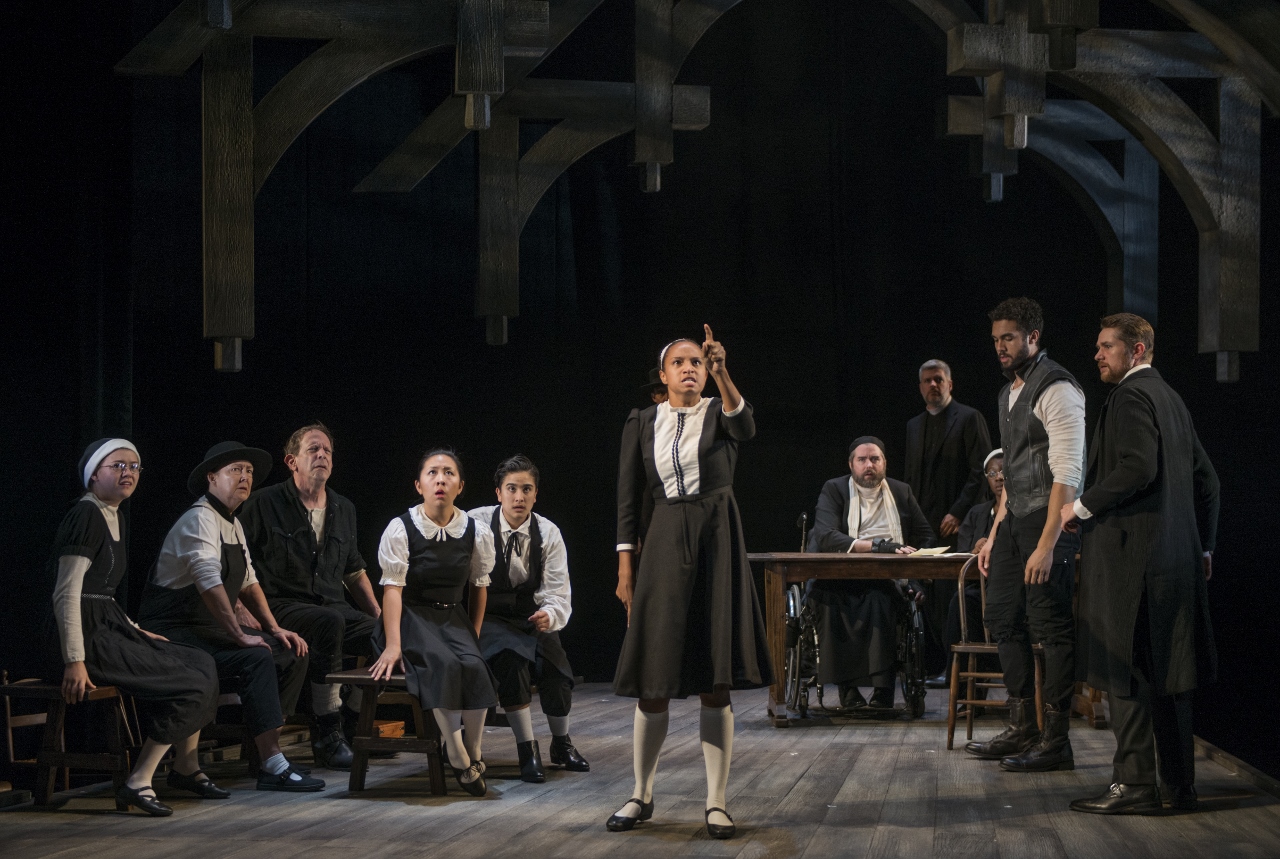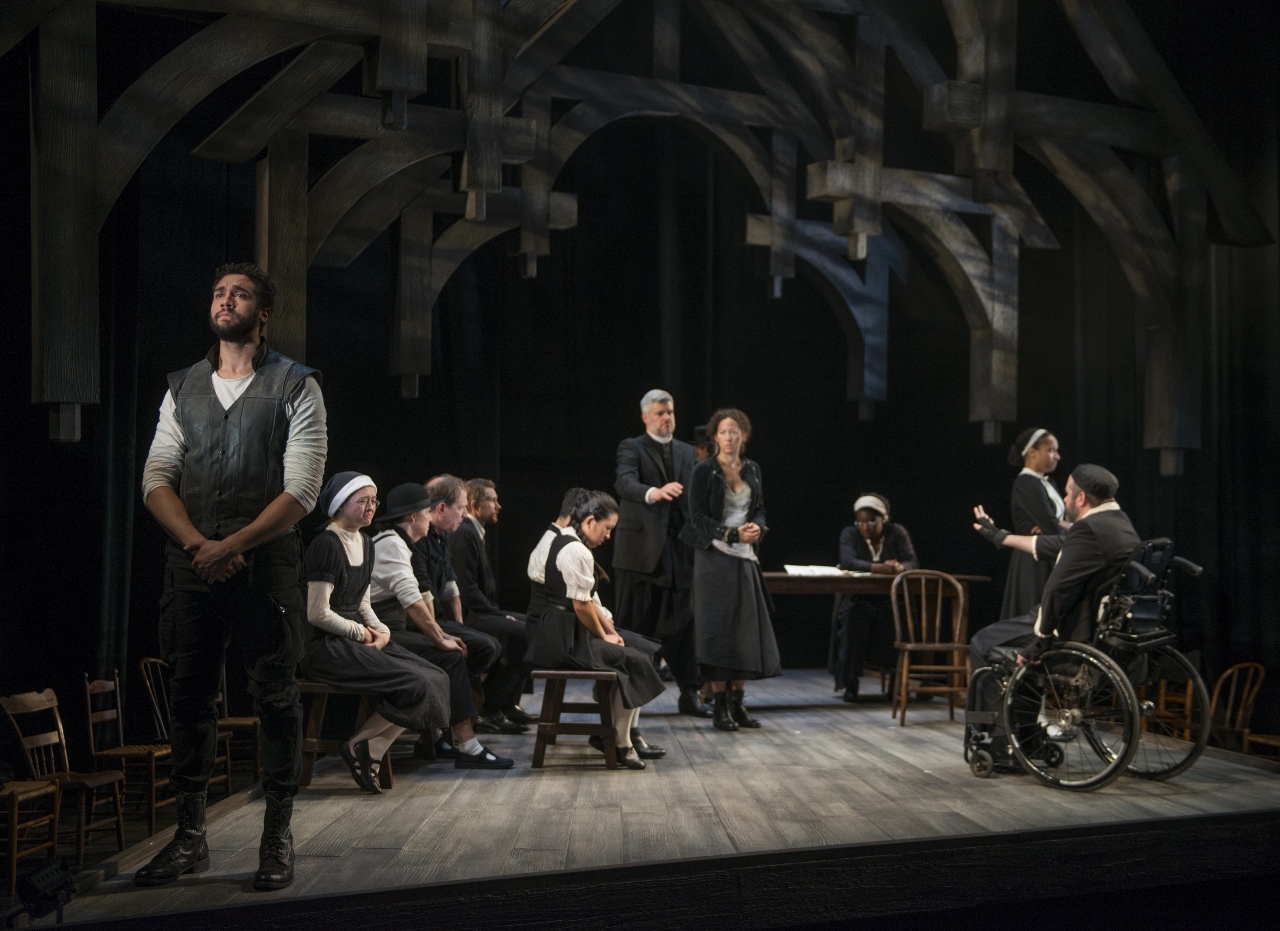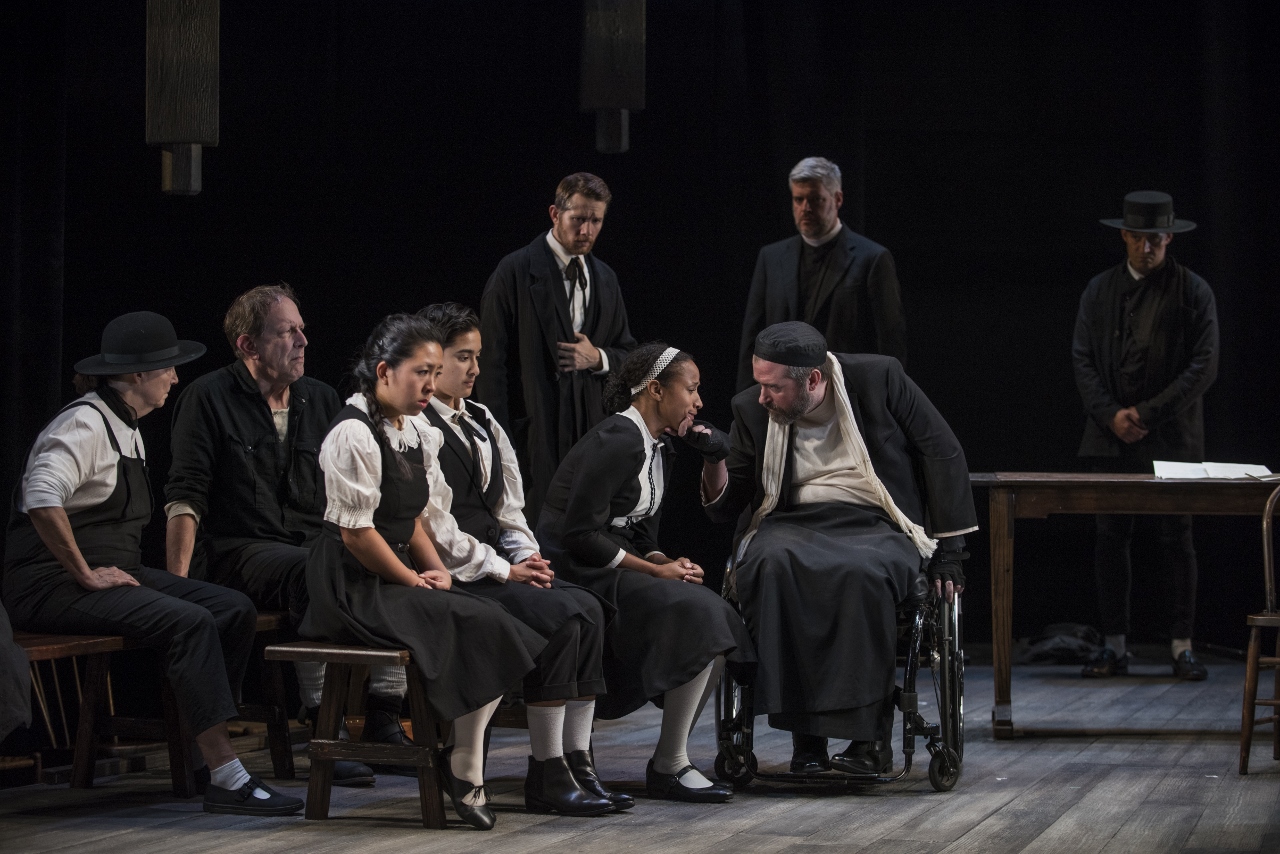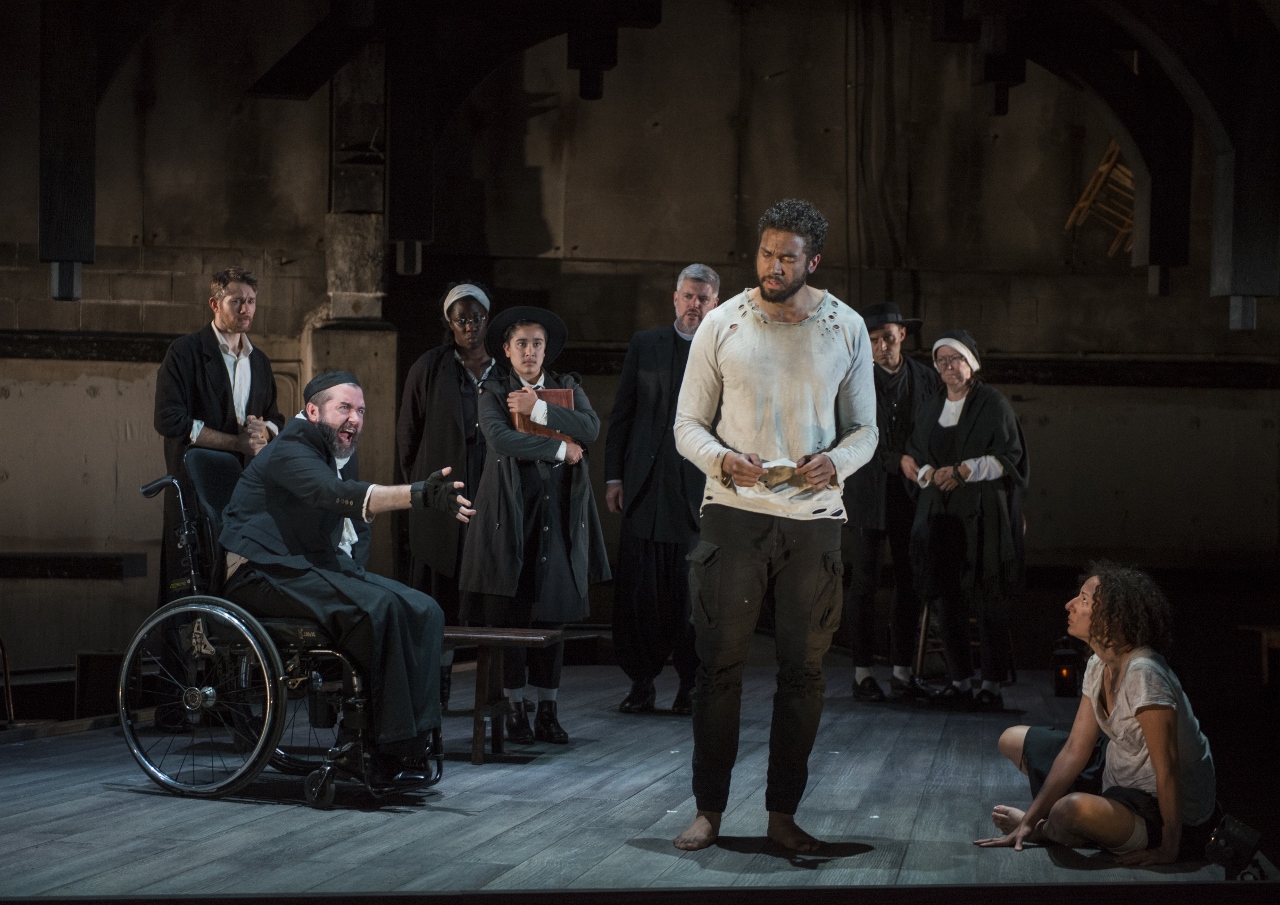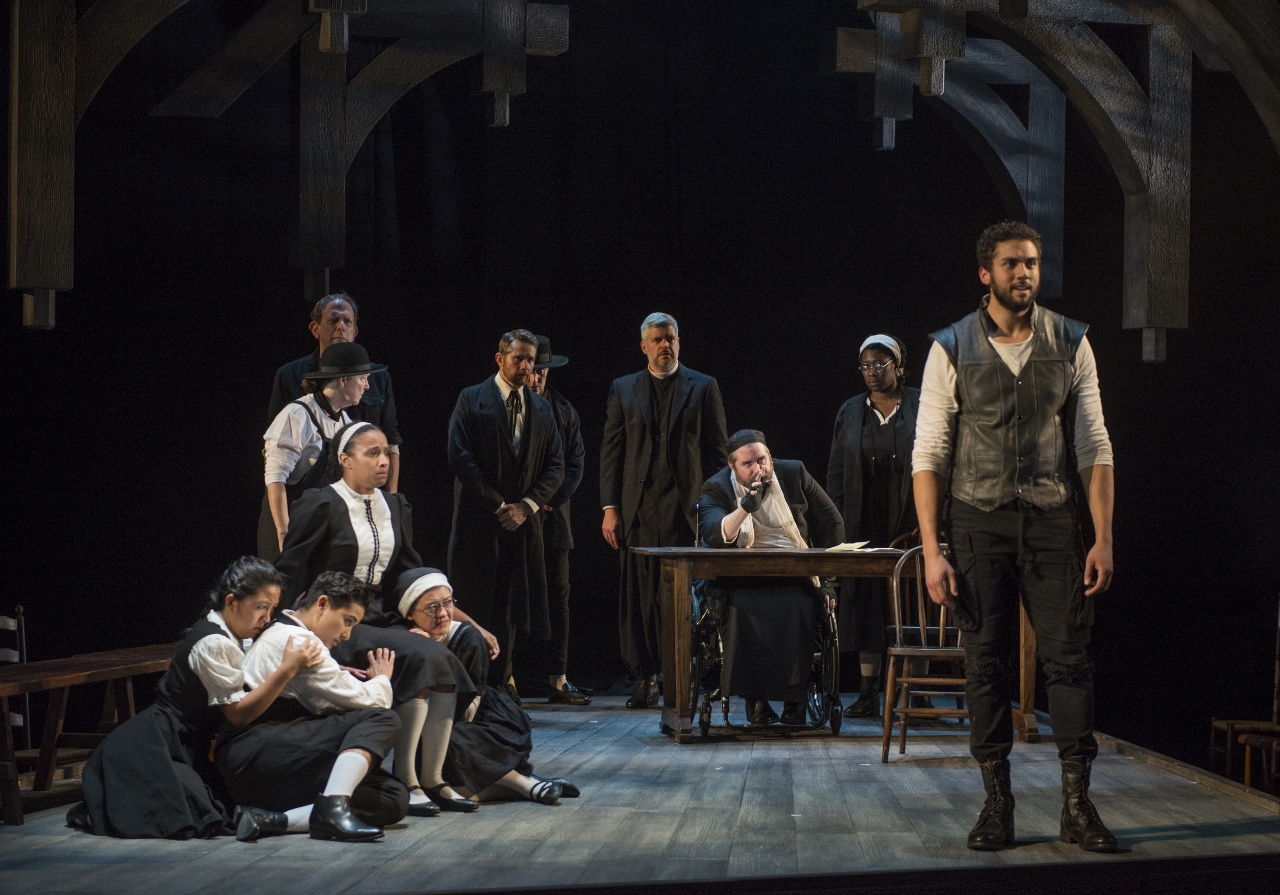FEAR FACTOR: 1692 = 2017
325 years ago, a witchhunt gave this continent one of its most chilling and cautionary cases of panic-peddling and persecution: In assorted “witch trials” the supposedly godly townsfolk of Salem, Massachusetts executed 19 innocent fellow humans. Part class-ridden repression, part naked plunder (these hangings facilitated some very convenient land grabs), and part ecclesiastical pogrom, the mass mania pitted neighbor against neighbor, making any eccentricity or non-conformity—even a penchant for reading—grounds for false accusation, a sham trial, and death by hanging. A feeding frenzy of recrimination masqueraded as righteousness.
Call it what you will—restrictive immigration, the Patriot Act, “fake news” and “alternative facts,” NSA espionage, cyberhacked rumor-mongering, loyalty oaths or pledges of allegiance—this combination of communal coercion and institutional surveillance remains a chilling formula for fascism. Worse, today it’s far more efficient, omnipresent and implacable than these quaintly superstitious colonists ever imagined.
Clearly, the fever isn’t over. Much as it conveys 1692 Salem (scare tactics that spread across New England before opposition could end them), Arthur Miller’s 1953 domestic tragedy targeted Joseph McCarthy’s anti-Communist congressional “show trials” by the House Un-American Activities Committee. A taut, topical script, The Crucible matters whenever it’s done; fear makes people hunt “witches” in pursuit of a false security.
Sixty-four years later, Miller’s plot construction still amazes and, with its operatic acting opportunities and enough cliff-hangers for a dozen melodramas, few plays ride such a roller-coaster of hope and hate. Forget your garden-variety haunted house—this is a haunted town at its cold-core worst.
Every scene lurches in a new direction to tighten the nooses around the beleaguered townsfolk. Each attempt to demonstrate a villager’s virtue is perversely confounded by the smug dismissal that “if you have nothing to hide, you have nothing to fear.” The midnight romps of teenage girls possibly high on woodland psychedelics morph into venomous accusations involving the unexplained deaths of seven newborn babies, voodoo “poppets” and piercing needles, demon possession, and a yellow bird that casts killer shadows.
Like Anna Shapiro’s first Steppenwolf revival ten years ago, their latest Crucible is a pile-driving, 150-minute production by Steppenwolf for Young Adults that explores every twist and turn as it heads for its devastating conclusion. Miller registers the contagious terror of this 17th-century town by focusing on John Proctor, an ordinary farmer forced into a reluctant heroism. Drawn into the nightmare in order to protect his wife, Proctor finally stands up to the true evil—his hate-ridden, blame-throwing home town. Miller doesn’t try to cover up these horrors with retroactive psychology or historical revisionism. By connecting them to the raw weaknesses of the Salem citizens, he forces us to ask, where would we stand?
Just as firmly, Jonathan Berry roots his heartfelt revival in the flesh-and-blood, finger-pointing conflicts that tore up the town. This strategic sensationalism is led by tensile-strong and cunningly contemporary portrayals by Travis A. Knight as John Proctor, a hero for all eras, and the richly vulnerable Kristina Valada-Viars as his much-tested wife. They share two scenes, public interrogations that test their consciences, love and marriage to the breaking point. Knight sometimes waxes matter-of-fact with Miller’s magnificent, rectitude-raising, Old Testament dialogue, but he personifies damaged goodness rising to an unparalleled occasion. Valada-Viars incarnates natural nobility in the last extreme of self-defense.
Seemingly dwarfed beneath set designer Arnel Sancianco’s peaked meeting-house roof, the cast of 13 (inevitably and not always persuasively doubled up and gender-reversed) unflinchingly recreate the confusion and cruelty of this colonial civil war. When they’re not in a scene, they impassively process to both sides of the concentrated stage, sitting on vintage wooden chairs signifying outside scrutiny.
There’s terrific work throughout: Millie Hurley as an aged woman who even in jail remains the conscience of the community; Larry Baldacci as a feisty victim (“More weight!”) doomed by his own zest for litigation; Echaka Agba as the Barbados conjure-woman whose tall tales ignite the adolescents’ worst impulses; Michael Patrick Thornton as the humorless and epicene prosecutor (instantly recalling Attorney General Sessions); Eric Hellman as a guilt-ridden theologian; and Peter Moore as the Salem minister who, caught up in the killings, refuses to halt the madness.
It’s fascinating here how, arguing from a real effect to a putative cause, the powers that be use the very “disruption” they create to “prove” the evil that threatens Salem. Ever since 9/11’s color-coded “security alerts,” this Orwellian mode of constant crisis has worked overtime to quell dissent and frighten constantly cringing citizens.
Most chilling are the young girls, both bullies and victims of their own adolescent hysteria. Creepy caricatures of false innocence, they’re viciously eager to destroy anyone who ever displeased them. Inciting them with a very visual vengeance is Naima Hebrail Kidjo as a hypocrisy-hating whore who strategically re-invents herself as the foe of Satan. It’s a makeover that even Donald Trump could envy.
The play’s powerful payoff is its final, soul-stirring sacrifice. An act of utterly unexpected decency, in this self-darkened, fear-mongering, and religion-plagued world of suspicion and paranoia it stands out like the star over Bethlehem.
photos by Michael Brosilow
The Crucible
Steppenwolf Theatre Company
Steppenwolf’s Downstairs Theatre, 1650 N Halsted St
ends on October 21, 2017
for tickets, call 312.335.1650 or visit Steppenwolf
for more shows, visit Theatre in Chicago
